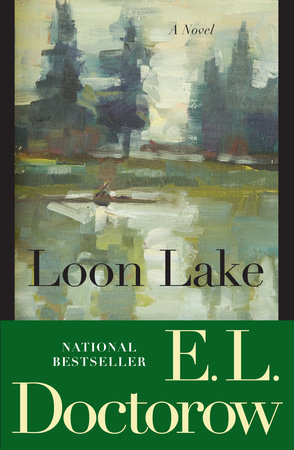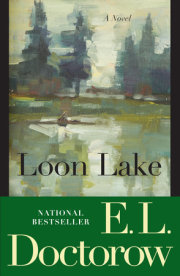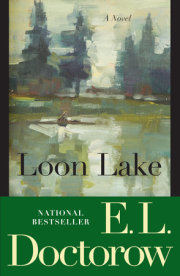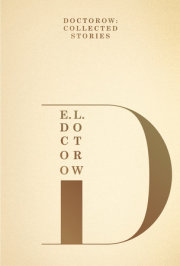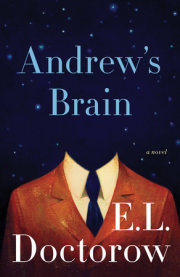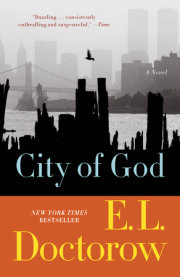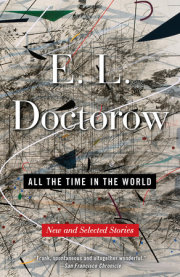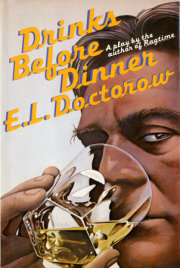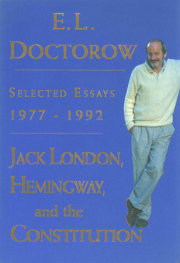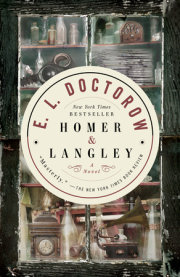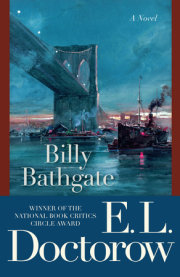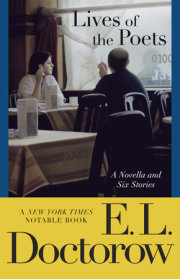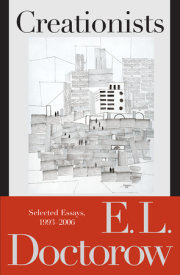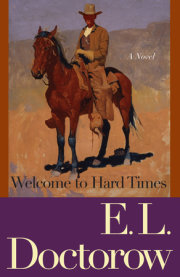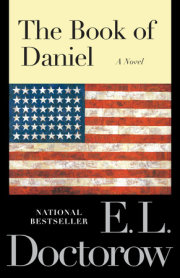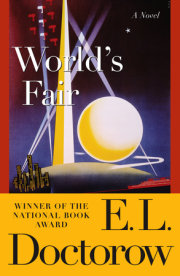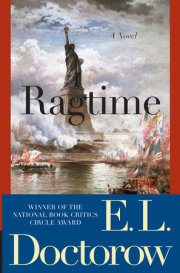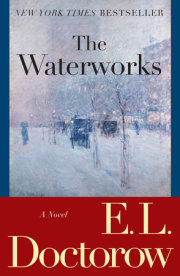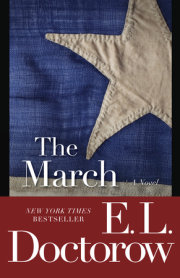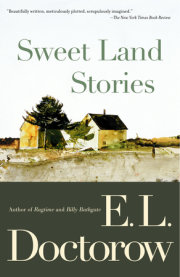They were hateful presences in me. Like a little old couple in the woods, all alone for each other, the son only a whim of fate. It was their lousy little house, they never let me forget that. They lived on a linoleum terrain and sat in the evenings by their radio. What were they expecting to hear? If I came in early I distracted them, if I came in late I enraged them, it was my life they resented, the juicy fullness of being they couldn’t abide. They were all dried up. They were slightly smoking sticks. They were crumbling into ash. What, after all, was the tragedy in their lives implicit in the profoundly reproachful looks they sent my way? That things hadn’t worked out for them? How did that make them different from anyone else on Mechanic Street, even the houses were the same, two by two, the same asphalt palace over and over, streetcars rang the bell on the whole fucking neighborhood. Only the maniacs were alive, the men and women who lived on the street, there was one we called Saint Garbage who went from ash can to ash can collecting what poor people had no use for—can you imagine?—and whatever he found he put on his cart or on his back, he wore several hats several jackets coats pairs of pants, socks over shoes over slippers, you couldn’t look at his face, it was bearded and red and raw and one of his eyes ran with some yellow excrescence oh Saint Garbage. And three blocks away was the mill where everybody in Paterson made the wages to keep up their wonderful life, including my father including my mother they went there together and came home together and ate their meals and went to the same bed together. Where was I in all of this, they only paid attention to me if I got sick. For a while there I got sick all the time, coughing and running fevers and wheezing, threatening them with scarlet fever or whooping cough or diphtheria, my only power was in suggesting to them the terrible consequence of one mindless moment of their lust. They clung to their miserable lives, held to their meager rituals on Sundays going to Mass with the other suckers as if some monumental plan was working out that might be personally painful to them but made Sense because God had to make Sense even if the poor dumb hollow-eyed hunkies didn’t know what it was. And I despised that. I grew up in a dervish spin of health and sickness and by the time I was fifteen everything was fine, I knew my life and I made it work, I raced down alleys and jumped fences a few seconds before the cops, I stole what I needed and went after girls like prey, I went looking for trouble and was keen for it, I was keen for life, I ran down the street to follow the airships sailing by, I climbed firescapes and watched old women struggle into their corsets, I joined a gang and carried a penknife I had sharpened like an Arab, like a Dago, I stuck it in the vegetable peddler’s horse, I stuck it in a feeb with a watermelon head, I slit awnings with it, I played peg with it, I robbed little kids with it, I took a girl on the roof with it and got her to take off her clothes with it. I only wanted to be famous!
And the coal trucks releasing their fearsome anthracite down the sliding chutes to the dark basements, and Ricco the Sweet Potato man putting into your hand a hot orange potato in a half sheet of the Daily News for three cents, the filthy black snow lying banked in the streets, the wind smelling of soot and machine oil blowing down Mechanic Street and you are holding your hands on the sweet heat, cupping it holding it up to your red face. The taking humbly, almost unconsciously of goodness by little kids who took it all, the rage of parents, the madness of old women in the dank stairwells, murder, robbery, threat in the sky, the unendurable prison of schoolrooms. In the five-and-ten was the cornucopia of small tin cars with wind-up keys made in Japan and rubber cops on motorcycles, and rubber chiefs in sidecars from Japan there were tin autogyros and tin DC-3s! You went for the small things, the molded metal car models that would fit in your palm, you watched the lady in her green smock and the eyeglasses looping from a black string around her neck, and when she turned, out came the white hand like a frog’s tongue, like a cobra’s, and down the aisles you went, another toy of goodness, bright-painted toy of gladness in your pocket.
But I was alone in this, I was alone in it all, alone at night in the spread of warmth waking to the warm pool of undeniable satisfaction pissed from my infant cock into the flat world of the sheet and only when it turned cold and chafed my thighs did I admit to being awake, mama, oh mama, the sense of real catastrophe, he wet the bed again—alone in that, alone for years in all of that. I don’t remember anyone’s name, I don’t remember who the gang members were, I don’t remember the names of my schoolteachers, I was alone in all of it, there was some faculty of being alone I was born with, in the noise of life and clatter of tenement war, my brain was alone in the silence of observation and perception and understanding, that true silence of waiting for conclusions, of waiting for everything to add up to a judgment, a decision, that silence worse than the silence of the deaf and dumb.
And then one day I am caught breaking the lock on the poorbox, the fat priest in his skirts grabbing my neck with a hand like pincers, not the first time slapping my head with his flat hand and giving me the bum’s rush back to the sacristy behind the stone Christs and Marys and the votive candles flickering like a distant jungle encampment and I conceive of what a great vaulting stone penitence this is, with its dark light quite deliberate and its hard stone floors and its cathedral carved space intimating the inside of the cross of man the glory of God, the sin of existence, my sin of existence, born with it stuck with it enraging them all with it God the Father the Son and That Other One really pissing them off with my existence I twist turn kick the Father has balls they don’t cut off their own balls they don’t go that far the son of a bitch—spungo! I aim truly and he’s no priest going down now with eyes about to pop out of his head, red apoplectic face I know the feeling Father but you’re no father of mine he is on his hands and knees on the stone he is gasping for breath You want your money I scream take your fucking money and rearing back throw it to heaven run under it as it rains down pennies from heaven on the stone floor ringing like chaos loosed on the good stern Father. I run through the money coming down like slants of rain from the black vaults of heaven.
I lived in New York for a couple of months. It seemed to me at first an incredibly clean place with well-dressed people and washed cars and bright-painted red-and-yellow streetcars and white buildings. It was a stone city then, and in midtown the skyscrapers were white stone and the sanitation men went around pushing big cans on two-wheeled carts and they’d stop here and there and sweep the gutters, that seems incredible to me now, they wore white jackets and white pants and military style caps of khaki. And in Central Park, which I thought of as the country, the park men came along with broomsticks with a nail on the end of them and impaled cigarette wrappers and ice cream wrappers on these sticks and then wiped the sticks off in these burlap bags they carried over their shoulders. The park was glorious and green. The city hummed with enterprise. It was a wonderful city! I thought, a place where things happened and where everyone was important even streetsweepers just from being there not like Paterson where nothing mattered because it was Paterson where nothing important could happen where even death was unimportant. It had size it had magnitude, it gave life magnitude it was one of the great cities of the world. And it went on, it was colossal, miles of streets of grand famous stores and miles of streetcar tracks, great ships bassoing in the harbor and gulls gliding lazily over the docks. I rode the clattering elevated trains that rocked and careened around the corners and when the weather was cold I stayed aboard making complete circles around the city keeping warm on the rush seats set over the heaters. I got to know the city. It calmed me down. Off on its edges you could always get a place to flop, there were still shanties on the hillsides below Riverside Drive, there were mission houses where you could get a bed down at the Bowery and be fumigated and there was a whole network of welfare places where you could get soup and bread if you weren’t proud. But I looked for work, I tried to stay clean and present myself at employment agencies crowds of pushing shoving men staring at jobs described in chalk on blackboards at employment agencies it was very difficult to persuade yourself you and not any of a hundred others were the man for the job.
Copyright © 2010 by E. L. Doctorow. All rights reserved. No part of this excerpt may be reproduced or reprinted without permission in writing from the publisher.

